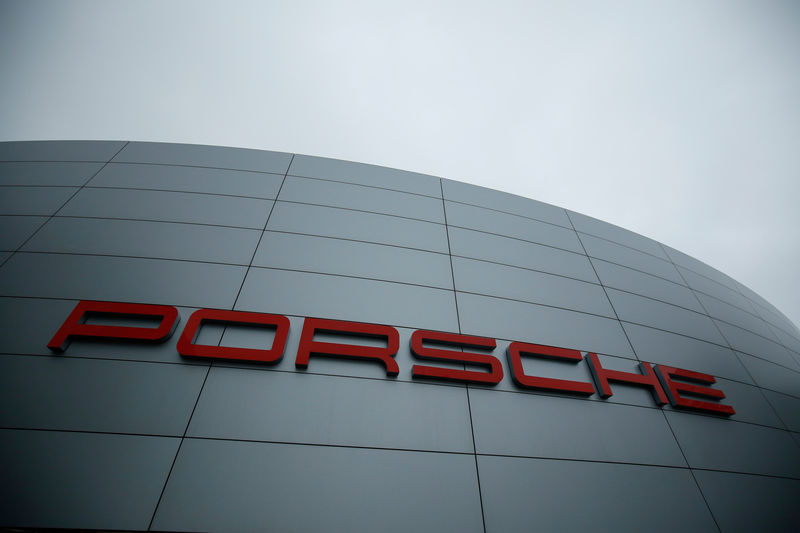© Reuters. FILE PHOTO: A Porsche logo is seen on a vehicle displayed during an event a day ahead of the official opening of the 2023 Munich Auto Show IAA Mobility, in Munich, Germany, September 4, 2023. REUTERS/Angelika Warmuth/File photo
By Victoria Waldersee
BERLIN (Reuters) -Porsche AG shares on Wednesday hit a one-year low since its listing last September as the carmaker warned the luxury sector was also feeling the hit of dampened consumer spending as interest rates rise.
The company’s supply chain was improving with inventories down, but high inflation combined with peak investments for a line of new products to launch in 2024 meant its costs were still high, Chief Financial Officer Lutz Meschke said.
“Governments increased interest rates heavily… that creates a situation where customers are quite reluctant (to invest in) a new product,” Meschke said.
Porsche shares inched down 1.13% from yesterday’s close to a new low of 85.92 euros at 1227 GMT, in line with a slow downward spiral since May and a broader share price decline this year across luxury and cars.
From a confident start after its public listing last September, the company has struck more a cautious tone in recent quarterly calls, said Daniel Schwarz, an analyst at Stifel, managing investor expectations for its third-quarter results.
Tesla (NASDAQ:) CEO Elon Musk also said last week he was worried that higher borrowing costs would prevent potential customers from affording its vehicles despite substantial price cuts, and other major carmakers have similarly become more cautious.
Rising inflation and economic uncertainty have curbed shoppers’ appetite for luxury after years of blockbuster demand, hurting quarterly sales of major brands like LVMH and Gucci-owner Kering (EPA:).
“We are suffering in the entire economy,” said Meschke. “It is also hitting the luxury industry – you can follow it when it comes to share price development of all luxury retailers worldwide.”
Porsche, which will launch new Panamera, Taycan and e-Macan models and a new sports car generation in the coming year, has spent 2 billion euros ($2.12 billion) so far in 2023 on research and development, the highest in a nine-month period in the company’s history.
Like other carmakers, it also faced a difficult market in China, with deliveries down 12% this year so far.
Executives were in the country last week to discuss strategy with dealers, Meschke said, including opening up new community centres for customers in a bid to establish a stronger brand in electric cars.
The luxury carmaker reported an 18.3% return on sales with operating profit up 9% to 5.5 billion euros in the first nine months of the year, even as it faced added costs of preparing for four upcoming product launches next year.
Its 2023 forecast calls for a 17%-19% return on sales of 40 billion euros to 42 billion euros, betting on the resilience of luxury demand even amid high inflation and an uncertain global economy.
Deliveries of its all-electric Taycan sports car grew 11% to 27,885 units, signalling a recovery from supply chain challenges in securing some parts for battery-electric vehicles that had clouded deliveries in the first half.
($1 = 0.9447 euros)
Read the full article here




